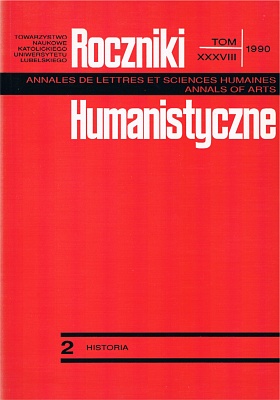Formacja kandydatów do zakonów w XVII i XVIII wieku
Abstrakt
Making use of the well-known in Polish historiography and valuable source material, the so-called religious questionnaire by nuncio G. Garampi of 1773-74, as well as the most recent technical literature, the author discusses the process of formation and upbringing of the candidates for religious orders in the 17th and 18th centuries. In his considerations he confines himself to show the formation and upbringing which the candidates were subject to in the religious novitiates.
The author pinponts that the Tridentine Council had a great influence on the setting of all matters related with the upbringing of religious youth in an order, and at the same time it was important for the very process of upbringing. This Council, while attaching great importance to a good formation of all candidates for the ministry (a well-known order to introduce theological seminaries in all dioceses), regulated also, among other things, the duration of novitiate in orders. From that Council on there were being set up central novitiates, introduced almost in all orders in place of the hitherto upbringing of the religious youth in all monasteries and abbeys. The abovementioned questionnaire makes notice of those novitiates. On the basis of them the author attempts to find the number of novitiates and novices in a dozen or so greatest orders in Poland at that time.
The question of the age of the candidates for orders, practices and devotions which they carried on in the novitiate, the role and function of the novitiate’s magister, bills and handbooks used in the formation of candidates - these are the subsequent questions with which deals the remaining part of the paper. Contrary to the number of novitiates and novices, the latter data have been based on either general literature concerning the orders themselves or on the literature dealing with particular questions.
Copyright (c) 1990 Roczniki Humanistyczne

Utwór dostępny jest na licencji Creative Commons Uznanie autorstwa – Użycie niekomercyjne – Bez utworów zależnych 4.0 Międzynarodowe.





